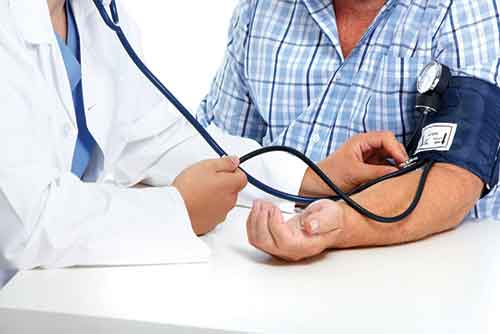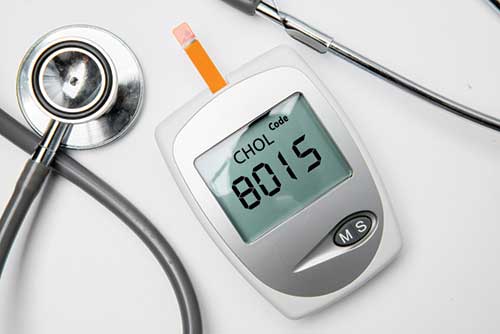Going by stereotypes, men typically overlook health concerns and are known to delay or avoid going to the doctor. Whether that stems from the overrated men-are-strong hype or from a laced fear of what the doctor might diagnose, the general mindset continues to sway most men who wait until they run out of all reasons to visit a healthcare provider. But health knows no gender bias; rather, many a health ailment is specific to each gender, demanding regular checkups and examinations to rule out any burgeoning of diseases. It is all about toeing the precaution line to ensure that your family is not burdened with a health risk from your careless attitude. Here is a quick health checklist for men which include some vital health examinations and screenings to get you on the right platform:
Heart screening

Generally speaking, men need to undergo basic tests to check blood pressure, cholesterol, and blood glucose levels every few years – more often if there is a family history of heart disease. You would need an overall health check in the 20s and 30s; blood glucose level every three years after age 45; and, depending on your history and risks, you might also need an abdominal aortic aneurysm at age 65 (enlargement of a weak area of the aorta) and carotid artery disease (blocked or narrowed arteries in the neck) and peripheral artery disease (blocked or narrowed arteries in your limbs and pelvis) in your 60s. Even with no risk factors, men over 65 should do screenings every one to two years and should also cover checkup of eyes for signs of cataracts, age-related macular degeneration, and glaucoma. These tests being the most crucial in the health checklist for men.
Blood pressure
Although blood pressure check is not gender-specific, today’s high stress environment demands check up for men beginning from the age of 20. Second most important item on the health checklist for men. It is recommended to get it checked once every two years; however, if your pressure is higher than normal, the regularity of check-ups may be increased. Remember, blood pressure is one of the risk factors for developing heart disease; it could, along with high cholesterol, diabetes, obesity, sedentary lifestyle, and others, also increase the chance of worsening an existing health condition. Hypertension or elevated blood pressure is a serious medical condition that significantly increases the risk of heart attack, stroke, kidney failure and blindness. Heart disease, or cardiovascular disease, is a leading cause of death worldwide. According to World Health Organisation, it is responsible for 31 percent of all deaths globally.
Cholesterol
Like blood pressure, blood cholesterol also needs to be checked from the age of 40. And unless otherwise prescribed by the doctor, it needs to be followed up every four years or so to ensure there is no increase in the cholesterol level. Again a crucial test on health checklist for men.
Blood glucose test
It is recommended to get blood glucose screening at the age of 45 and thereafter every three years if it is normal. However, screenings may be initiated earlier and continued more frequently if there are risk factors like obesity, high blood pressure and high cholesterol. Blood sugar level monitoring provides information that aids diabetes management.
Prostate health
Screening for prostate cancer is suggested for men 50 years and older – 45 years, if there is family history. It is the most common cancer in men which affects the prostate gland, which plays a role in urine control.
Mental health test
Although both men and women experience depression, the symptoms are generally different and that makes screening important to identify the manifestation of the mental health issue. Men tend to be angry or aggressive, while women tend to feel low and sad, making it difficult to recognise the symptoms. It could affect men at any age, but treatment can help you to get better and regain the harmony in life. Ideally, depression requires a self check or family/friends ought to take note of the differences to help you initiate the recovery process. In many a situation, mental health symptoms could also come across as health concerns. Racing heart, tightening of chest, recurrent headaches and even digestive issues could be signs of mental health problems. If not identified early on and treatment initiated, it could lead to substance abuse and even suicide. The key for treatment is to fix an appointment with your healthcare provider to get a grip on the situation.




